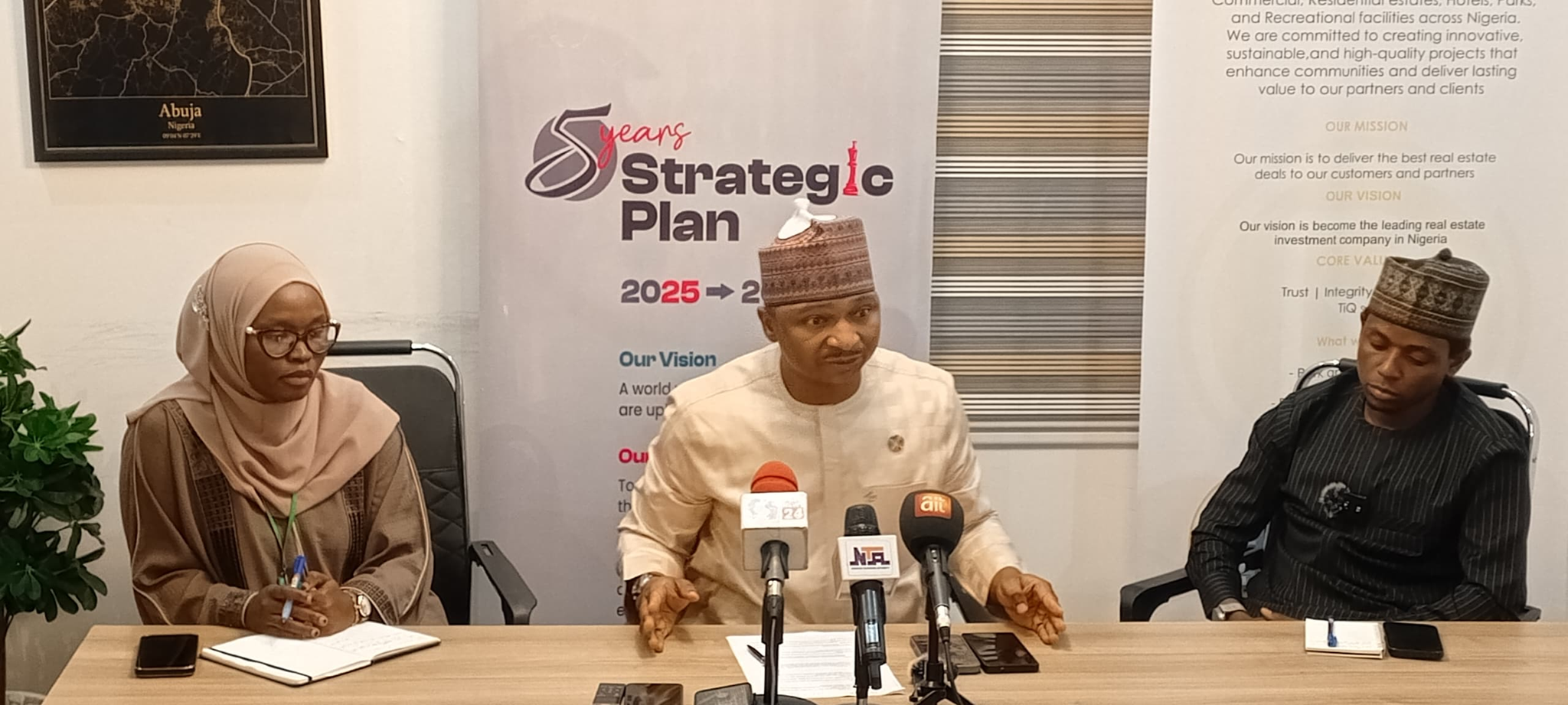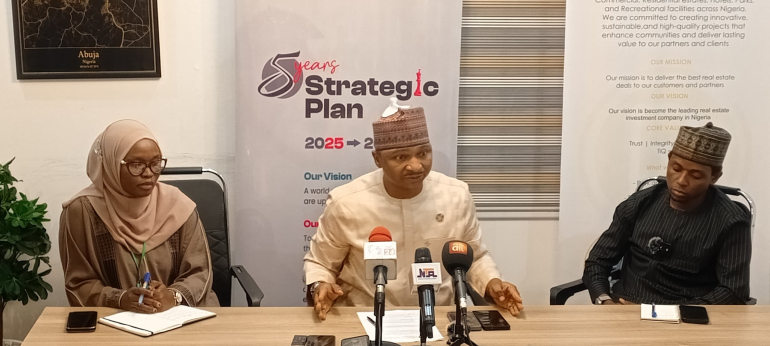Listeners:
Top listeners:
-
play_arrow
104.9FM Best rock music demo
-
play_arrow
Demo Radio Nr.1 For New Music And All The Hits!
-
play_arrow
Demo Radio Techno Top Music Radio
-
 play_arrow
play_arrow
Police Commissioner Launches Weapon and Riot Control Training for FCT Officers Democracy Radio

By: Julian Osamoto
Africa’s foremost social accountability group, Connected Development (CODE), has unveiled an ambitious campaign aimed at ensuring every Nigerian has access to affordable housing by 2030, amid a worsening housing deficit estimated at 28 million units.
The initiative, announced in Abuja on Tuesday, in partnership with BraveRock Investment Limited, seeks to accelerate progress towards the United Nations Sustainable Development Goal (SDG) 11, which calls for safe and affordable housing for all by 2030.
CODE’s Chief Executive, Hamzat Lawal, described the housing crisis as a “human rights emergency,” warning that time is running out for Nigeria to meet its commitments.
“The Nigerian Constitution guarantees every citizen suitable and adequate shelter, yet millions remain without homes. With just five years to the 2030 SDG deadline, urgent action is non-negotiable,” Lawal said.
According to BusinessDay (2025), Nigeria requires 900,000 new housing units annually to meet demand. Current output, however, is a meagre 100,000 units per year, leaving homeownership at a low 25 percent. The Federal Capital Territory (FCT) alone needs 1.7 million housing units — nearly 10 percent of the national shortfall.

What’s Driving the Crisis?
Lawal outlined key factors worsening Nigeria’s housing problem:
- Rapid urban migration and population growth
- Low mortgage penetration — only 5% of housing finance reaches developers
- Absence of a national housing data centre for evidence-based planning
- Land hoarding, bureaucratic bottlenecks, and inflated construction costs
- Weak regulation and overdependence on imported building materials
Proposed Solutions
CODE is calling for a multi-pronged strategy to close the housing gap:
- Creation of a National Housing Data Centre for accurate statistics
- Inclusive land reforms with tax incentives to boost development
- Adoption of affordable housing finance models — rent-to-own, micro-mortgages, and cooperatives
- Promotion of local building materials and green technologies to cut costs
- Expansion of public-private partnerships (PPPs) for large-scale housing delivery
- Integration of civil society in monitoring housing projects using civic tech
“If we don’t have accurate data, how can we plan, budget, and set realistic policies?” Lawal queried, urging government to scale up funding for initiatives like the Family Home Fund and National Housing Fund.
BraveRock’s Commitment
BraveRock’s Managing Director, Usman Zambuk, pledged stronger private sector involvement, noting the firm has delivered 350 housing units in Abuja since 2020 and completed projects in Kaduna, Kano, Bauchi, and Gombe.
“Our target is to more than double our output in the next five years. We are expanding into Lagos and deepening projects in the northeast,” Zambuk said.
However, he warned that affordability remains elusive due to soaring construction costs, land prices, and limited financing options.
“Most building materials are imported. With inflation and high interest rates — as much as 35% on project loans — it’s nearly impossible to deliver affordable homes,” he explained.
The Bigger Picture
Experts say Nigeria’s housing crisis has severe social consequences, fueling homelessness, informal settlements, and skyrocketing rents in cities like Abuja. CODE and BraveRock hope their partnership will set a national benchmark for sustainable housing development, leveraging SDG Goal 17, Partnerships for the Goals to rally government, private sector, and civil society.
Written by: Julian Osamoto
#BraveRock #Connected Development #DemicracyRadio
Similar posts
Copyright Democracy Radio -2024


